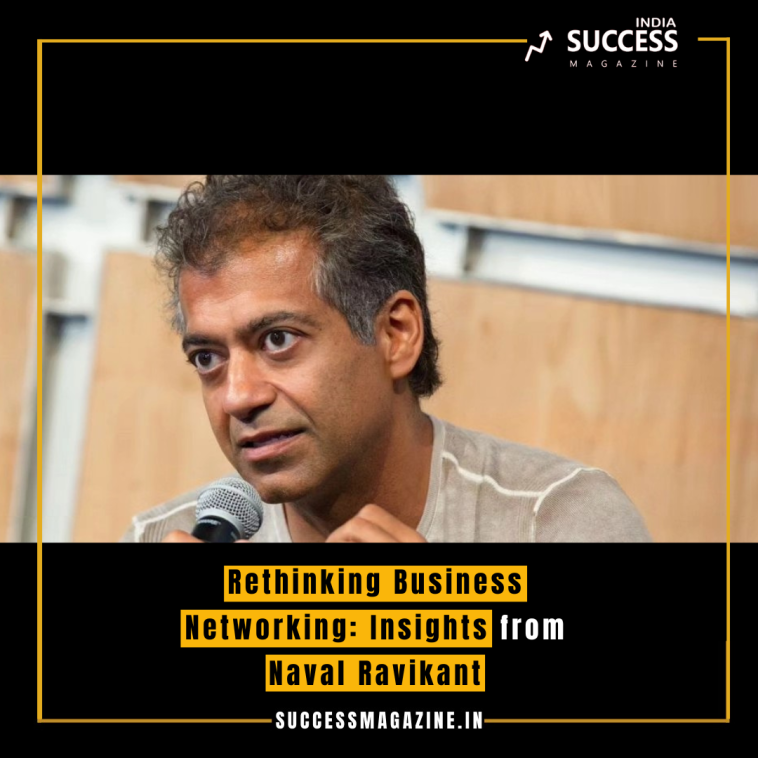Naval Ravikant, a prominent Indian-American entrepreneur and investor, has sparked a conversation about the value of traditional business networking with his bold statement: “Business networking is a complete waste of time.” Ravikant’s perspective challenges conventional wisdom and encourages entrepreneurs and professionals to rethink their approach to building relationships and fostering connections in the business world.
In his statement, Ravikant emphasizes the importance of focusing on building something truly interesting and valuable. According to him, genuine innovation and creativity are far more compelling than attending networking events or collecting business cards. Ravikant argues that when individuals are working on projects or ventures that truly excite them, they naturally attract like-minded individuals who are interested in what they are doing.
This insight highlights the power of passion and purpose in driving meaningful connections. Instead of engaging in superficial networking activities, Ravikant advocates for investing time and energy into pursuing projects and endeavors that align with one’s interests and values. By focusing on building something of substance, individuals are more likely to attract genuine connections and opportunities organically.
Ravikant’s perspective also underscores the importance of authenticity in relationship-building. Rather than approaching networking as a transactional activity aimed solely at advancing one’s own interests, he encourages individuals to prioritize authenticity and genuine connection. Building relationships based on mutual respect, shared interests, and common goals can lead to more meaningful and long-lasting partnerships.
Moreover, Ravikant’s assertion challenges the notion that networking is a prerequisite for success in business. While networking certainly has its place in the professional world, Ravikant suggests that its effectiveness may be limited compared to the impact of creating something truly innovative and valuable. In essence, he argues that focusing on building a compelling product, service, or idea can be a more powerful driver of success than traditional networking activities.
However, it’s essential to acknowledge that Ravikant’s perspective may not apply universally to all industries and contexts. In certain industries where relationship-building and networking are integral parts of the business landscape, networking events and activities may still hold value. Additionally, for individuals who are just starting out in their careers or seeking mentorship and guidance, networking can provide valuable opportunities for learning and growth.
Ultimately, Ravikant’s message serves as a reminder to prioritize substance over superficiality in the pursuit of professional connections. While networking can be a useful tool for expanding one’s network and opportunities, it should not be pursued at the expense of meaningful work and genuine relationships. By focusing on building something of value and fostering authentic connections, individuals can cultivate a more fulfilling and impactful professional journey.
In conclusion, Naval Ravikant’s perspective on business networking challenges conventional wisdom and encourages individuals to prioritize substance over superficiality. By focusing on building something truly interesting and valuable, individuals can attract genuine connections and opportunities organically. While networking has its place in the professional world, Ravikant’s insight serves as a powerful reminder to approach relationship-building with authenticity, passion, and purpose.


